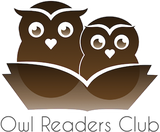
Pros and Cons of the Different Parenting Styles
What’s the best way to raise your child? It depends on who you ask. There seem to be a neverending evolution of parenting style with each getting a quirkeir nickname than its predeciessor. Here we explore the main five archetypes and the pros and cons of each. Maybe you can find your own style and write a book on it.
Some of the best known styles are:
• Tiger Moms: Nothing is ever good enough.
• Helicopter Parents: Involved in every aspects of the child’s life.
• Snowplough Parents: The child faces no problems in life.
• Free Range Parents: Let children be children.
• Gentle Parents: Freedom with limitations.
• Tiger Moms: Nothing is ever good enough.
• Helicopter Parents: Involved in every aspects of the child’s life.
• Snowplough Parents: The child faces no problems in life.
• Free Range Parents: Let children be children.
• Gentle Parents: Freedom with limitations.
Tiger Parents
These are the kiasu authoritarian parents who demands total obedience and perfection from their children. A score of 98 in the exams is not good enough. The child is expected to excel in every aspect of life because they believe that the second place is the first loser. More common in Asian culture, this term is usually attached to mothers. The term was popularised by Amy Chua in the book Battle Hymn of the Tiger Mother.
Pros: The child would usually grow up to have multiple skillsets and has made a habit out of being productive.
Cons: The child would grow up likely take setbacks a lot harsher than his peers and may not know how to deal with failures.
Helicopter Parents
These are the kaypoh parents that are over-involved in every aspect of their child’s life, frequently calling the teachers to check on their child’s behavior in school. This show of concern for their child never seem to wane and is most evident when the son of Helicopter Parents goes to the army. Psychologist Foster Cline and education consultant Jim Fay coined the term Helicopter Parenting in 1990 in their book Parenting with Love and Logic.
Pros: A child will not experience scarcity and will always feel a sense of comfort.
Cons: The child will grow up lacking emotional resilience and independence.
Snowplough
“I got this” is probably the most common phase that the child hears from his kiasi parents. By dealing with the child’s problems for him or her, snowplough parents may think their child will be inoculated against failing. These parents would stay up late into the night to help their kid with his art homework because the child was feeling a tad sleepy. The term started surfacing in 2015, after former high school teacher David McCullough published the book titled You Are Not Special.
“I got this” is probably the most common phase that the child hears from his kiasi parents. By dealing with the child’s problems for him or her, snowplough parents may think their child will be inoculated against failing. These parents would stay up late into the night to help their kid with his art homework because the child was feeling a tad sleepy. The term started surfacing in 2015, after former high school teacher David McCullough published the book titled You Are Not Special.
Pros: The child will gain a taste of success early in life. Everything will be smooth sailing as long as the child takes the advice of his parents.
Cons: The child grows up with the false sense of entitlement and will be disappointed when the child learns that adult life does not pander to to them the way his parents would.
Free Range Parents
These are the type of parenting most commonly found in the 70s. The children are given the freedom to explore and a good wack on the head if they do something wrong. This apparently bo chup style of parenting believes that a child should be allowed to learn by experience – Take a fall, scuff your knee, and walk it off. The term was made famous by blogger and author Lenore Skenazy who wrote the book Free‑Range Kids, Giving Our Children the Freedom We Had Without Going Nuts.
Pros: The child will develop a strong sense of awareness, mature faster, and is able to take responsibility for his actions.
Cons: There’s always the danger that the child may get into a situation too deep to handle that has long lasting repurcussions.
Gentle Parents
Gentle Parents believe that by providing strong emotional and close physical support, a child will grow up feeling positive about himself or herself and will be better at handling relationships when they grow up. Empathy and human interaction ranks higher in this sort of parenting style than good academic results. The term was popularised by a book titled The Baby Book: Everything You Need to Know About Your Baby From Birth to Age Two written by the Sears family in 1993.
Pros: It provides a safe space for the child to experience love and the dynamics of human interaction. The child will grow up to have a greater understanding of how society functions.
Cons: The child’s world view could be limited to his family’s economic standing in society and beliefs.
Which type of parenting style do you most associate yourself with? In my next article, I look at how different enconomic standing have an effect on raising a child.
Written by Eugene Tay, founder of Brain & Butter and Monsters Under the Bed.
When Eugene was a young boy, he wanted to be an astronaut. When that didn't take off, he decided that he was going to be like Indiana Jones and explore the world as an archaeologist. Eventually, he figured out how he can do both. That's when he became a writer.


